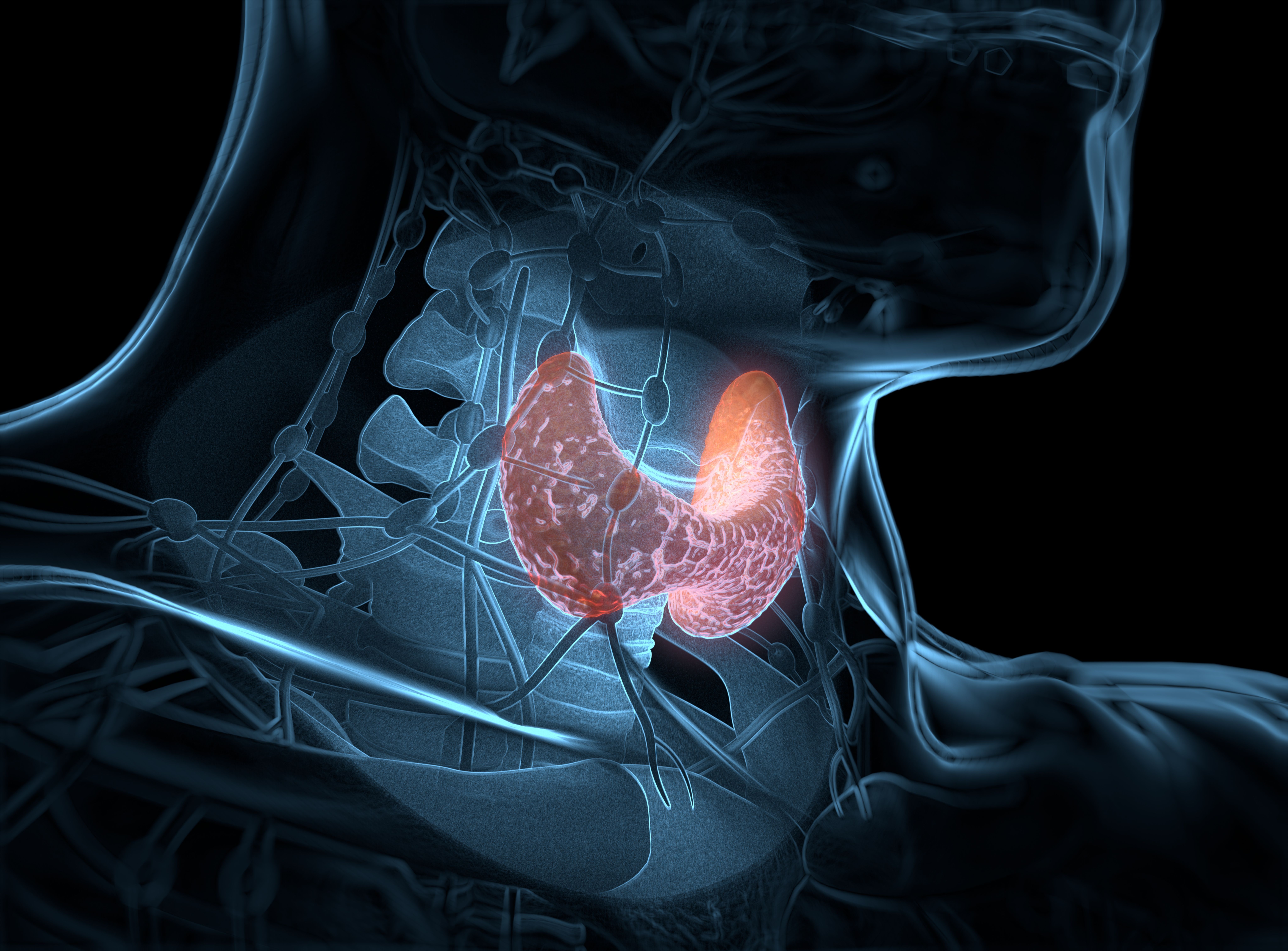Optimizing Thyroid Cancer Care: New Tools and Emerging Options
Lori J. Wirth, MD, discussed advancements in diagnosing and treating thyroid cancer, offering community oncologists improved tools for identifying low-risk cancers, personalizing treatment, and exploring innovative approaches.
Lori J. Wirth, MD

Advancements continue to transform the landscape of diagnosing and treating thyroid cancer, offering new tools and avenues to healthcare professionals. According to Lori J. Wirth, MD, one crucial shift of late has been with the growing ability to avoid over diagnosing clinically insignificant thyroid cancers.
With this refined approach, experts have been able to spare patients from unnecessary interventions. Further, molecular testing and artificial intelligence (AI)-powered imaging are also helping to improve the accuracy of diagnoses.
“We are a lot smarter now in terms of not diagnosing thyroid cancers that don't need to be diagnosed,” explained Wirth, associate professor of medicine at Harvard Medical School and medical director of the Center for Head and Neck Cancers at Massachusetts General Hospital, in an interview with Targeted OncologyTM.
In terms of treatment, targeted therapies that work to attack specific genetic mutations are showing great promise and researchers are continuing to develop new treatments for cancers harboring BRAF V600E mutations, RAS mutations, and more.
Clinical trials are also exploring innovative approaches like neoadjuvant therapy and cellular therapy. With continued progress expected in precision medicine and the potential development of more effective therapies, the future of the thyroid cancer space appears bright.
In the interview, Wirth discussed advancements in diagnosing and treating thyroid cancer, offering community oncologists improved tools for identifying low-risk cancers, personalizing treatment, and exploring innovative approaches.
3D illustration of thyroid gland: © Anatomy Insider - stock.adobe.com

Targeted Oncology: Please explain how the thyroid cancer space has evolved in recent years.
Wirth: One of the most important advances in the diagnosis of thyroid cancer is refining who we are diagnosing with thyroid cancer and who we are not diagnosing. In the last decade, there has been an increasing appreciation for the fact that we have been overdiagnosing some thyroid cancers that are clinically insignificant, that are small, that will never cause illness to patients, and in the last decade, we are appreciating the fact that we have been overdiagnosing and overtreating those patients. We are a lot smarter now in terms of not diagnosing thyroid cancers that don't need to be diagnosed.
Then also, 1 of the important advancements is using molecular testing in the diagnostic workup of thyroid nodules. There are some thyroid cancers that can be difficult to diagnose on a fine needle aspiration. Coupling the fine needle aspiration with molecular diagnostic diagnostics allows for more specific diagnosis of thyroid cancers, and that can then help in the initial treatment approaches to those cancers.
What can you discuss regarding imaging techniques or biomarker identification?
In terms of imaging techniques related to the diagnosis of thyroid cancer, 1 thing that we are going to be seeing is AI applications of diagnostic imaging for defining which thyroid nodules are benign vs which are malignant. I think that we are just at the start of those new technologies and incorporating them into the diagnosis of thyroid cancers.
What are some of the most promising treatments on the horizon for thyroid cancer?
Some of the most promising treatments for thyroid cancers have been gene specific treatments, targeted therapies for cancers that are driven by specific gene alterations. For example, targeting NTRK fusion-positive advanced thyroid cancer with NTRK-specific inhibitors has been a major breakthrough. Similarly, targeting RET-altered cancers, with RET-specific inhibitors has been a big breakthrough. Less commonly, we see thyroid cancers that are driven by ALK fusions. We know that when we treat those advanced thyroid cancers with ALK-specific inhibitors, we can see durable responses. The precision targeted therapy space has been an area where there has been major progress.
What we are still working on is how to leverage the presence of BRAF V600E mutations, which we see in a large number of advanced papillary thyroid cancers and in a significant percentage of anaplastic thyroid cancers as well. With RAS-driven cancers, mostly follicular thyroid cancers, there are a whole new set of drugs that are in development that are being developed more for other RAS-driven cancers, such as pancreatic cancer, melanoma, lung cancer, and we are going to be seeing applications of those new drugs in RAS-driven cancers in the coming years as well.
Are there any ongoing clinical trials investigating innovative therapies or combinations for thyroid cancer?
There are a number of ongoing clinical trials that are worth mentioning. One thing that I would mention is that there is an international phase 3 trial comparing dabrafenib [Tafinlar] and trametinib [Mekinist] in the second- or third-line setting for patients with differentiated thyroid cancer, iodine refractory, that is BRAF V600E mutation-positive. This study is enrolling patients who have progressed on a first- or second-line [tyrosine kinase inhibitor] therapy and randomizing patients to dabrafenib plus trametinib vs best supportive care. There is a crossover to active therapy for patients that progress that are on the best supportive care arm of the trial. This will be an important international phase 3 trial that is underway.
Another set of trials that is innovative and is emerging in the field is clinical trials taking a look at the neoadjuvant setting. When patients present with bulky local regional disease that may not be resectable, particularly getting all gross tumors out there, we think that there is a potential clinical benefit for reducing the tumor burden with neoadjuvant therapy so that the surgeons can do a resection and at least get all the gross tumor out. There is a multicenter clinical trial that has opened at our institution taking a look at lenvatinib [Lenvima] in patients with locally advanced differentiated thyroid cancer. That study is also open at MD Anderson in Houston and Memorial Sloan Kettering in New York. There is also another neoadjuvant trial that is also a multicenter trial that MD Anderson is the lead of taking a look at neoadjuvant selpercatinib [Retevmo] in patients with locally advanced thyroid cancer that is driven by RET alterations, either RET fusions or RET mutations in medullary thyroid cancer, or RET fusions in differentiated thyroid cancer. The neoadjuvant trial space is 1 where I think we are going to be seeing a lot of activity in the future.
What emerging trends or developments are on the horizon?
In terms of emerging trends and developments in the field of thyroid cancer research, there is a lot going on. We have talked about precision medicine, and we are going to continue to make progress in precision medicine [and] targeted therapy for patients with advanced disease. I think we are also going to make progress in the neoadjuvant setting. Perhaps with neoadjuvant treatment, bringing in highly effective drugs earlier into the course of the disease process, maybe we will be curing more patients with thyroid cancer.
I also think that we are going to be learning more about applying immunotherapy in advanced thyroid cancer. While there is not a big role for many of our patients with advanced lung cancer with our current immunotherapy strategies, we are going to figure that out in the coming years. I am quite confident of that.
Cellular therapies are [also] being investigated. There are not a lot of clinical trials right now that are underway with cellular therapies but here are a couple. Thyroid cancer is a good setting for studying cellular therapies. The thyroid gland is typically ablated in patients with thyroid cancer, so we do not have to worry about some collateral damage to the normal thyroid tissue from [chimeric antigen receptor] T-cell therapy that you might need to worry about in targeting other solid tumors. Then, we have cancer-specific antigens that are targetable with cellular therapies as well. I think that we are going to be seeing advances in that field in the coming years.
Anticipating Novel Options for the RAI-Refractory DTC Armamentarium
May 15th 2023In season 4, episode 6 of Targeted Talks, Warren Swegal, MD, takes a multidisciplinary look at the RAI-refractory differentiated thyroid cancer treatment landscape, including the research behind 2 promising systemic therapy options.
Listen
Wirth Explores Challenges of Therapy Selection for RAI-Refractory Differentiated Thyroid Cancer
June 28th 2024During a Case-Based Roundtable® event, Lori J. Wirth, MD, discussed with participants how they approach use of lenvatinib and other therapy for patients with radioactive iodine–refractory differentiated thyroid cancer.
Read More
SELECT Trial Establishes Lenvatinib’s Role in RAI-Refractory DTC
May 2nd 2024In an interview with Targeted Oncology, Lori J. Wirth, MD, delved into how the data from SELECT signals lenvatinib effectiveness as a frontline therapy for patients with RAI-refractory differentiated thyroid cancer.
Read More